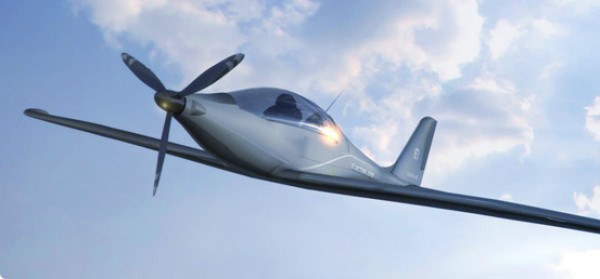Electric aircraft making strides

The planned electric aircraft contest may have been canceled at this year’s EAA AirVenture, but Gary Boggs still declared the Antares, an electric plane he was promoting outside the Innovations Hangar, the clear favorite.
“This would have won the contest,” Boggs said. “This was the only one ready for the competition.”
The Antares is a white one-seat craft with a massive wingspan and lightweight, nearly flat wings, making it resemble a glider.
“That makes it structurally complicated,” Dave Nadler, owner of the Antares, said. “But it’s a structural marvel.”
Though Nadler, a Boston native, was confident in his craft’s abilities, he said electric power isn’t quite ready to compete in mainstream or commercial aviation.
“We don’t have good enough battery technology,” Nadler said. “It’s going to be a long time.”
Michael Mularski, who has been coming to AirVenture since he was five, jumped at the chance so when his employer asked him to attend this year to promote the Elektra One, an electric/solar-powered hybrid.
Mularski, a sales manager for SolarWorld who began working on his own plane designs at age 14, is such a fan of solar power that when he started work on related projects a few years back even his wife noticed his improved mood.
“My demeanor changed,” Mularski said. “She could tell.”
Mularski has been attending AirVenture for 34 years, and said he is excited SolarWorld has partnered with PC-Aero of Germany to promote the Elektra One, which will fly during Wednesday’s air show.
Engineer Calin Gologan of PC-Aero said this kind of aircraft comes with several benefits.
“The motivation is to save costs, while also to draw on the abundant resource that is the Sun,” Gologan said. “It would be a pity not to use all that energy.”
Gologan’s company has heady plans: it aims to package sales of the Elektra One with a solar hangar, and eventually wants to produce solar airports.
Though electric and solar powered aircraft aren’t quite ready to supplant mainstream aviation’s reliance on gas and fossil fuels, Gologan said it is far from an elitist trend.
“What I do is try to bring the technology to large masses of people at a low cost,” he said. “Power to the people!”
Ray Argyle, a regular AirVenture attendee from Michigan, was in favor of electric craft’s ability to reduces aviation’s reliance on fossil fuels, but didn’t foresee a large surge in their popularity coming any time soon.
“It might be a niche thing,” Argyle said. “I don’t see it happening in my lifetime.”
Greg Scotes, who flew into Oshkosh from the Los Angeles area, said the lack of advanced battery technology will make it hard for electric planes to be commercially viable, but the cutting-edge movement still has time.
“It’s definitely in its infancy,” Scotes said.
